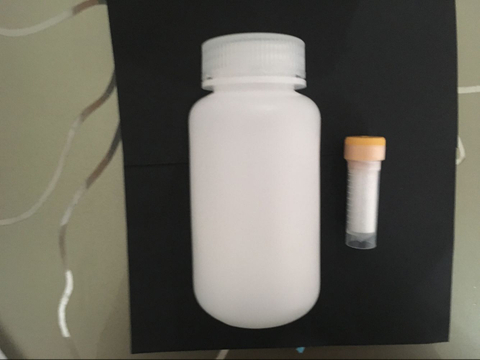Hormone Repair Manual: A Guide to Healthy Hormones After 40
As women approach their 40s and beyond, hormonal changes become an integral part of their journey. This transitional phase, often called "second puberty," marks the beginning of perimenopause—a critical tipping point for long-term health. Understanding the intricate changes in hormones and how they affect the body empowers women to navigate this period with confidence and take charge of their well-being.
Why Everything Is Different After "Second Puberty"
Just as puberty initiates a cascade of hormonal changes during adolescence, perimenopause ushers in a second wave of transformation. However, this phase is distinct:
Hormone levels, including estrogen and progesterone, begin to fluctuate unpredictably.
Physical and emotional symptoms like mood swings, fatigue, and hot flashes may emerge.
The body's metabolism slows, making weight management more challenging.
These changes signal the body's preparation for menopause and require tailored approaches to maintain optimal health.
Perimenopause: A Tipping Point for Long-Term Health
Perimenopause isn't just a temporary adjustment—it’s a time when lifelong health risks may come to the forefront. Key areas of concern include:
Bone Health: Declining estrogen can lead to reduced bone density, increasing the risk of osteoporosis.
Cardiovascular Health: Hormonal shifts can affect cholesterol levels and heart health.
Brain Health: Fluctuating hormones are linked to cognitive changes and a higher risk of dementia later in life.
Addressing these issues early during perimenopause is critical to ensuring long-term health and vitality.
The Four Phases of Perimenopause
Perimenopause unfolds in four distinct stages, each with unique challenges:
Early Perimenopause: Slight menstrual irregularities and subtle hormonal shifts begin.
Mid-Perimenopause: Symptoms like night sweats, mood changes, and weight gain become more noticeable.
Late Perimenopause: Menstrual cycles become infrequent, and symptoms may intensify.
Post-Perimenopause: Transition to menopause is complete; health risks linked to low estrogen emerge.
Understanding these phases can help women prepare for and manage the changes effectively.
The Role of Testosterone and Insulin in Weight Gain
Weight gain during perimenopause is often blamed on estrogen decline, but testosterone and insulin also play significant roles:
Testosterone: Lower levels can lead to a decrease in muscle mass, slowing metabolism and contributing to fat accumulation, particularly around the abdomen.
Insulin: Hormonal changes can increase insulin resistance, making it harder to regulate blood sugar and leading to weight gain.
Focusing on a balanced diet, strength training, and lifestyle adjustments can mitigate these effects.
How to Speak With Your Doctor About Hormone Therapy
Hormone therapy (HT) can be a game-changer for managing perimenopause symptoms. Here’s how to approach the conversation with your doctor:
Research Options: Learn about bioidentical hormones, including natural progesterone, which is often gentler on the body.
Discuss Symptoms: Be clear about what you’re experiencing, whether it's heavy periods, insomnia, or migraines.
Ask About Risks and Benefits: Understand how HT may affect you, especially if you have underlying health conditions.
An open dialogue ensures that your treatment plan aligns with your specific needs and goals.
Treatment Protocols for Common Perimenopause Symptoms
Perimenopause comes with a wide range of symptoms, each requiring a personalized approach:
Night Sweats and Hot Flashes: Cooling techniques, herbal supplements, or low-dose HT can help.
Insomnia: Melatonin, mindfulness practices, and magnesium supplementation are effective solutions.
Migraines: Hormonal stabilization through HT or supplements like magnesium can reduce frequency.
Heavy Periods: Iron supplementation, anti-inflammatory diets, and medical procedures (if necessary) can provide relief.
Integrative treatments that combine lifestyle changes, medication, and alternative therapies can offer holistic symptom relief.
Risk Reduction for Osteoporosis, Heart Disease, and Dementia
Hormonal changes increase the risk of chronic conditions, but proactive measures can minimize these risks:
Osteoporosis: Strength training, calcium-rich diets, and vitamin D supplementation are essential.
Heart Disease: Monitor cholesterol levels, stay active, and maintain a heart-healthy diet.
Dementia: Prioritize brain health with omega-3 fatty acids, mental exercises, and good sleep hygiene.
Regular health screenings and preventive care are vital for staying ahead of these risks.
Hormone Repair Peptides: A New Frontier in Hormonal Health
Hormone repair peptides are emerging as a promising solution for addressing the challenges of perimenopause. These bioactive compounds work by signaling the body to restore and balance hormone levels naturally. Key benefits include:
Supporting skin elasticity and hydration, which often decline with age.
Enhancing energy levels and muscle tone.
Improving sleep quality and reducing hot flashes.
Peptides offer a cutting-edge approach to hormone health, providing a natural, targeted alternative to traditional therapies.
Conclusion
Perimenopause marks a new chapter in a woman’s life, bringing challenges but also opportunities to prioritize health and well-being. By understanding the phases, addressing symptoms proactively, and exploring innovative treatments like hormone repair peptides, women can navigate this transition with confidence.
Taking control of your hormonal health after 40 isn’t just about managing symptoms—it’s about laying the foundation for a healthier, more vibrant future.
Anti-Acne Anti-Microbial
Anti-Aging Repair
Anti-pigmentation
Anti-Radical
Anti-Sensitivity
Anti-Stretch Marks
Anti-Wrinkle
Skincare Peptide
Breast Firming, Anti-Cellulite, and Slimming
Eye Care
Eyelash Care
Hair Care
Hair Pigmentation
Lip Care
Moisturisation
Oligopeptide
Peptide Combination
Repair Hormone Face
Peptide Intermediates
 Recombinant Protein
Recombinant Protein 



